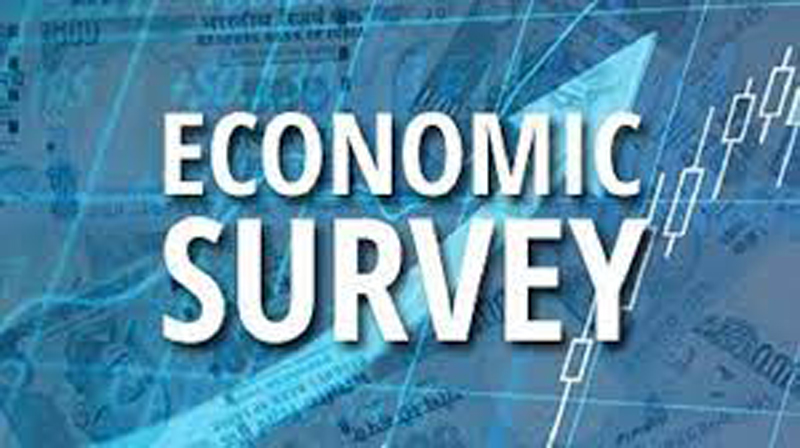Coordination Centre being set-up to identify area specific gaps
Goal-wise strategies chalked out by administration
Mohinder Verma
JAMMU, Apr 2: Union Territory of Jammu and Kashmir is marching ahead to achieve the targets set under Sustainable Development Goals by 2030 and goal-wise strategies have already been chalked out by the administration in this regard. Moreover, Coordination Centre is being set up to identify area specific gaps in the development.
In the Economic Survey 2022-23 released recently by the J&K Government, it has been claimed that Union Territory is committed to achieve the targets set under Sustainable Development Goals by 2030 and necessary steps in this regard are being taken by the administration.
Measures like Back to Village, Aspirational Development Programme, Universal Health Insurance Scheme, Social Security Schemes, Digitization and Good Governance and building access are helping to cover gaps identified and provide service delivery mechanism to the unreached segments of the society.
Moreover, Sustainable Development Goal (SDG) Dashboard and Coordination Centre is being established in J&K which will help to evaluate and identify the area specific gaps in the development, the Economic Survey said, adding districts will be ranked on the performance on SDG District Indicator Framework and in future, budgeting will be based on Output-Outcome Monitoring Framework (OOMF) showing the actual achievement of Key Performance Indicators and identify the gaps which are required to be bridged with the development planning in the concerned area.
“Effective interventions are being developed to address the underperforming targets so that tangible progress can be achieved within the time frame”, the Survey said while disclosing that goal-wise strategies have already been chalked out by the Government to achieve SDGs by 2030.
In J&K various schemes like MGNREGA, National Social Assistance Programme, Pradhan Mantri Awas Yojana (PMAY)-Rural & Urban, NFSA, Integrated Child Development Service (ICDS), Umeed Scheme, Pradhan Mantri Matritva Vandana Yojna (PMMVY)and Universal Health Coverage PMJAY-SEHAT are being implemented to achieve SDG Goal-I, which aims to end poverty in all forms.
About Goal 2, which aims to achieve food security and improved nutrition and promote sustainable agriculture, the Economic Survey said, “various schemes like Integrated Child Development Service (ICDS), Poshan Abhyian, ICDS, National Mission on Agricultural Extension and Technology (NMAET), Rashtriya Krishi Vikas Yojana (RKVY), Mission for Integrated Development of Horticulture (MIDH) and Mid-Day Meal Scheme are being implemented to achieve this goal”.
In order to achieve Goal 3, the focus of which is on enhancing health and well-being related outcomes, the Economic Survey said that around 350 Health Infrastructure Projects/works worth more than Rs 7000 crore are coming up in Jammu & Kashmir which includes 2 AIIMS, 2 State Cancer Institutes, 2 Bone and Joint Hospitals, 7 New GMCs, 15 Nursing Colleges besides 140 PMDP projects for strengthening of district and sub-district level institutions.
To achieve the goal of ensuring inclusive and equitable education, the Government of Union Territory of Jammu and Kashmir is leaving no stone unturned to implement NEP 2020 and various schemes besides opening of new universities, up-gradation of present universities, IIMs, IITs, Medical Colleges and AIIMS to strengthen educational infrastructure.
Various schemes like NIRBHAYA, Dowry Act, Beti Bachao Beti Padhao, Beti Anmol etc are being implemented to achieve the Goal-5 which is aimed at eliminating discrimination against women and girls everywhere.
About goal, which seeks to lessen inequalities among various socio-economic groups in terms of access to services, economic opportunities and overall quality of life, the Economic Survey said that various schemes like Pradhan Mantri Adarsh Gram Yojana, National Social Assistance Programme, SCA to TSP, Border Area Development Programme are being implemented.
The other goals for which all out efforts are being made by the Government are aimed at ensuring the availability and sustainable management of water and sanitation for all; eliminating inefficient energy sources and instead promote universal access to safe cooking fuel and electricity generated from non-polluting and renewable sources which are affordable; focusing on growth which is sustainable and inclusive in nature and seeks to address a host of concerns pertaining to productivity, full employment, unemployment, decent work and labour rights; making cities and human settlements inclusive, safe, resilient and sustainable and reducing the effects of climate change.


